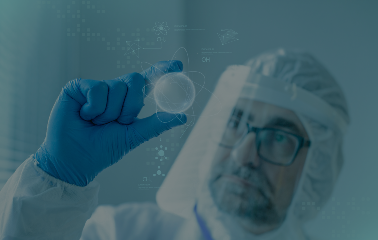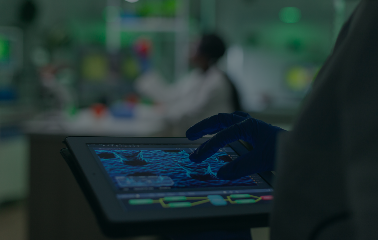Skip to content 



AI-based Drug Development Solution
Overview
"Qu Bing" accesses multi-source medical and pharmaceutical data, classifying drugs, genes, diseases, and metabolic pathways to construct massive data-scale maps of targets, drugs, diseases, and pathways. Through molecular pathway analysis and identification, it predicts and estimates the topology of disease networks, protein-protein interactions, and drug-target relationships. It provides solutions for pharmacological and biological experiments based on data mining and explainable analytical capabilities.
Challenges

High Cost and High Risk in New Drug Development
Developing new drugs is an expensive and extremely time-consuming process, with average costs possibly exceeding several billion dollars and taking 10 to 15 years. The risk and cost mainly stem from extensive biological experiments with low success rates.

Complex Biological Challenges
Diseases often involve complex networks of genes and proteins and their biological pathways, making the accurate identification and validation of drug targets difficult. This challenge requires research teams to have in-depth biological knowledge and the ability to analyze complex systems.

Diverse Biological Big Data
The rapidly growing big biological data, including genomics, proteomics, and others, are dispersed across various platforms, making their management and comprehensive application a major technical challenge. How to effectively utilize these data resources is crucial to the fusion of biotechnology and information technology such as pharmacological analysis and protein interaction predictions
Architecture
Benefits
High-Quality Pharmaceutical Data
We have organized, cleaned, and integrated dozens of pharmaceutical datasets, such as CTD, KEGG, Pharmgkb, DrugBank, etc, and accumulated a knowledge graph with tens of millions of points and edges, laying the foundation for various applications.
Shorten Development Cycles, Reduce R&D Costs
"Qu Bing" leverages its precise prediction capabilities based on diverse data, integrating into various stages of new drug development such as target identification, protein interaction prediction, and repurposing of old drugs. By pre-screening experimental samples using big data, reduces the scope of actual biological experiments and increases the success rate, thereby shortening the new drug development cycle and reducing costs.
Explainability + Regulation
Prior knowledge in the drug development process can be input in advance in the form of logical expressions, reducing the results that contradict industry mechanisms. This approach not only meets the regulatory requirements and professional knowledge necessary for new drug discovery but also enhances the reliability of the system's output results.